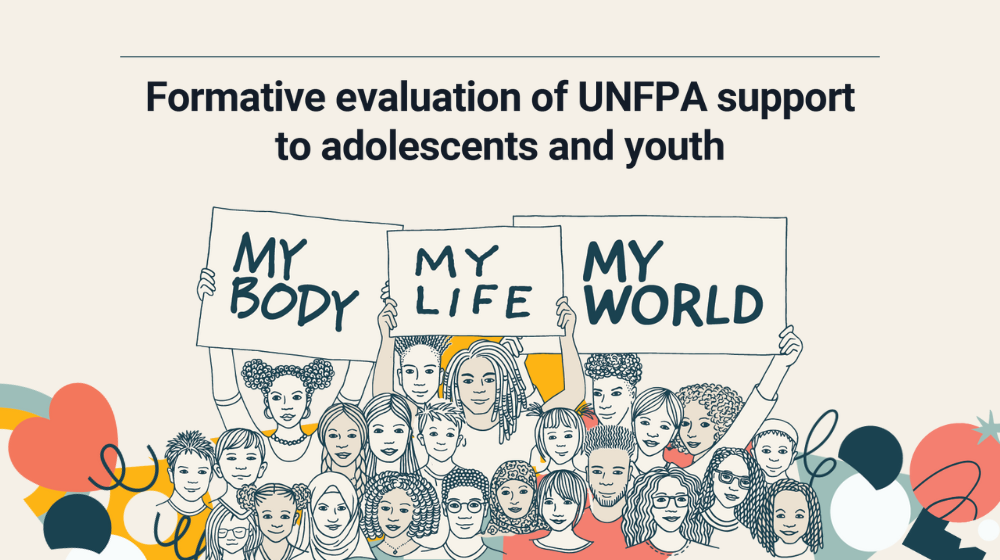The evaluation assesses the progress of the UNFPA Adolescents and Youth Strategy (also known as My Body, My Life, My World) and provides evidence, lessons and actionable inputs to further accelerate its implementation. The evaluation centres on adolescents and youth programming from 2015 to 2022, with a particular emphasis on the duration since the roll-out of the Strategy in 2019.
The evaluation marked a significant milestone as it engaged youth as co-managers via an innovative Youth Steering Committee. Young people were also involved in the evaluation as contributors, evaluators and key informants. This experience promoted intergenerational learning and exchange during the evaluation process.

The evaluation finds that the Strategy lays out a holistic vision for multi-sectoral adolescents and youth programming, but it needs to be fully operationalised. UNFPA has contributed to all three dimensions of the strategy, My Body, My Life, My World, including in humanitarian settings. While adolescent and youth programming is human rights-based, a deeper analysis of inequalities can help reach young people furthest behind. UNFPA can further wield an influence over the global adolescents and youth agenda by leveraging its population dynamics work to address demographic trends and population challenges. However, the effectiveness of adolescent and youth work is hindered by inadequate resources and capacities, and the corporate structure and positioning of this area within UNFPA.
The evaluation recommends a more robust and effective operationalisation of the Strategy and enhancing the three dimensions, My Body, My Life, My World. UNFPA should fully integrate adolescents and youth within the humanitarian response and leverage youth, peace and security and climate resilience. UNFPA should further define its priorities for adolescent and youth work and review the corporate structure and staff capacity for effective implementation of the Strategy.
#YouthEval
Related document
Meaningful youth engagement in evaluation: Multiplying the transformative power of evaluation, Lessons from UNFPA experience
